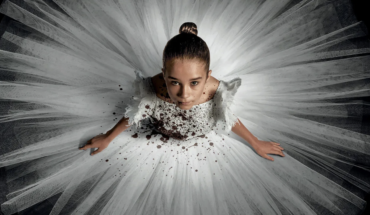Celebrates the universal spirit of rebellion
Berlin, 1956, and the wall is not yet built. People from the Soviet-controlled East can take a train to the Democratic West, but they need identification papers and a good, temporary reason for doing so. When the train guard looks over the papers of teenager Kurt (Tom Gramenz), he asks him what his business is in the West. Kurt says he’s going to visit his grandfather’s grave and he’ll be back before nightfall—this is acceptable.
Kicking off the 2018 German Film Festival in Melbourne, The Silent Revolution (Das Schweigende Klassenzimmer), directed and scripted by Lars Kraume and based on the true account by Dietrich Garstka, might seem like a movie with little to offer non-German residents. It’s a story an historical moment so close to the people of Berlin that its emotional resonance might not carry over. Instead, there’s a spirit of rebellion and uprising in the film, a kind of youthful, vibrant dissatisfaction with authority, that ought to translate seamlessly to anyone who has felt that they ought to do something to shake up the status quo—even something small, like a moment of silence.
That moment occurs after a group of students listen to RIAS, a banned radio station at Kurt’s uncle’s place, who’s an older hermit (Michael Gwisdek) with fire in his belly. They hear reports of the riots in Hamburg, where protestors are fighting off the influence of communism and the Soviets. A known football player is said to be killed, and the class agrees to hold a moment’s silence in the next day, which lands them in a great deal of hot water.
There’s a certain lightness of touch to Kraume’s direction. Certain dramatic moments have a kind of breeziness to them, as if no one event is treated as the central point of conflict. As a result, there’s a re-enactment quality to the film, sapping some of the gravitas of the situation. Having said this, the story is taken seriously, and it’s a thrilling experience. Kraume may purposefully not be letting any single event take too much of the film’s drama, because this is a story about historical significance captured a point in time. Each important detail is even-handed and clear.
The best thing about The Silent Revolution is the way this moment of silence infects the communist regime like a virus. What plays like a class prank is treated as an act of dissent. Seeing the way their authority figures treat a peaceful rebellion, the students become more incensed. Kurt’s friendship with his best friend Theo (Leonard Scheicher), while Erik (Jonas Dassler), the son of a Soviet soldier, is tormented by his participation in the protest.
Germany has a film history rife with political importance and the presence of fascism. This year’s German Film Festival is infused with that spirit, while screening exciting new films and older classics by great directors like Wim Wenders.
– Tom
Tom Bensley is a freelance writer in Melbourne who reviews anything he attends, watches or reads. It’s a compulsion, really. Follow him @TomAliceBensley.
The German Film Festival runs from 24 May to 6 June at the Palace Cinemas Como and Kino. The venues are wheelchair accessible.




